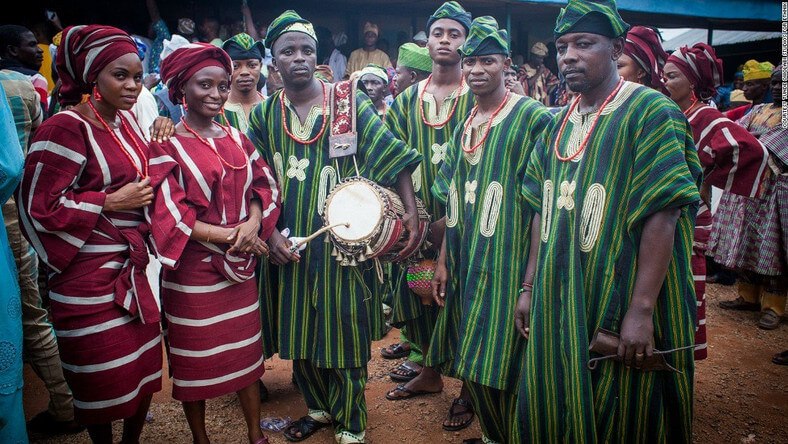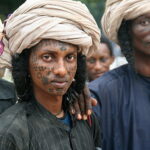Introduction:
Immerse yourself in the rich and captivating world of the Yoruba people. From their intriguing creation myths to their enduring cultural influence, the Yoruba tribe is a tapestry of history and resilience.
The Fascinating Creation Myths of the Yoruba people
The Yoruba people’s origin story is a whimsical and compelling narrative that unfolds with the involvement of Obatala, a central figure in their creation myth. Using a gold chain, snail shell, hen, cat, and palm nut, Obatala is said to have crafted the land and its inhabitants. The amusing twist involving too much Palm wine adds a playful charm to this unique tale.
Tracing the Origins and Historical Evidence
Delve into the ancient roots of the Yoruba people, dating back to the Stone Age. They experienced waves of immigration and expansion, with theories suggesting their presence as early as 300 BCE. Their advancements in pottery, glass manufacturing, and political organization propelled the growth and prosperity of Yoruba civilization, leaving a profound impact on the cultural landscape.
The Oyo Empire and Its Influence
The strategic influence of the Oyo Empire, bolstered by an impressive mounted army and interconnected towns, facilitated the diffusion of Yoruba culture across Nigeria. However, the dark shadow of the transatlantic slave trade led to economic instability and internal conflicts, ultimately paving the way for British colonization.
Resilience and Global Influence
Despite the harrowing impacts of the transatlantic slave trade, the Yoruba culture has demonstrated remarkable resilience. Their traditions, including a blend of Christianity, Islam, and indigenous beliefs, have not only endured but flourished. The global spread of Yoruba culture has left an indelible mark on diverse regions, from West Africa to Scandinavia and the United States.
Conclusion:
The Yoruba people’s captivating journey through history is an inspiring testament to the enduring power of culture and tradition. Their resilience, creativity, and global influence continue to resonate in today’s world, cementing their legacy as an integral part of human history and heritage.


